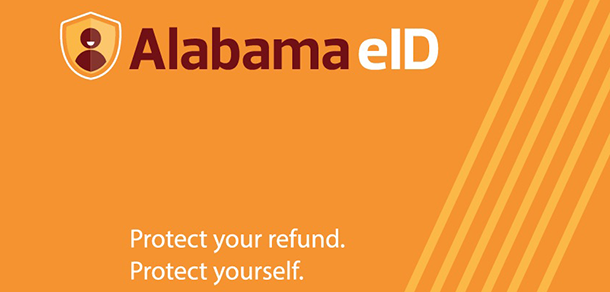State eID with facial recognition to help Alabama stop tax refund fraud
08 February, 2018
category: Biometrics, Digital ID, Government
A state eID with facial recognition could help Alabama officials curb attempts at tax refund fraud via a first-in-the-nation program backed by identity and authentication firm IDEMIA. Full-scale deployment began earlier this year after a successful 2017 pilot.
This selfie is compared against the photo on record in the driver’s license database to verify the person registering for the app is who they claim to be
The anti-fraud effort revolves around the Alabama eID app. State taxpayers can download the app for free from the Apple App or Google Play online stores. Those taxpayers then complete what the Alabama Department of Revenue calls a “short registration process in which their identities are verified by scanning their physical driver’s license or state-issued ID and taking a selfie with their smartphone. This information is compared against the data and photo on record in the driver’s license database to verify the person registering for the app is who they claim to be.”
How the state eID with facial recognition helps stop fraud
After the facial recognition technology verifies the user’s identity, the system sends a QR code to the taxpayer’s phone. The taxpayer uses that code to log into the state’s tax website. When a return is filed under a participating taxpayer’s name, that person receives an alert and then takes another selfie to confirm his or her identity. “Once you open the app and take your photograph or ‘selfie,’ you will be prompted to slowly turn your head from side-to-side, enabling the app to determine that you are a live person and not a photograph,” state officials say.
The state eID with facial recognition program is voluntary for taxpayers, but those who enroll receive “priority processing” for their returns, said the Alabama Department of Revenue. Alabama reportedly will pay IDEMIA $250,000 annually for the program. Last year, the state stopped 37,233 tax returns suspected to be fraudulent—that’s about 1.1 percent of the tax returns filed in the state. Those stopped returns represented more than $8.6 million in refunds, according to state figures.
The Alabama eID program comes amid a growing market opportunity in the tax refund area. For instance, a recent Lexis-Nexis report determined there exists a “rise in state income tax refund identity fraud,” with 86 percent of “state government tax administration officials [viewing] identify fraud as a major problem with the state tax refund process.”




